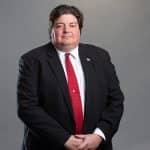Eyes on the Employment Prize: Select a Degree Program Containing Soft Skills Lessons
One of the most exciting prospects for college students, whether entering an institution as a newly minted undergraduate or advancing your bachelor’s degree with graduate work, is to follow the roadway of subject matter expertise that leads to an exciting career. Perhaps you pursue the sciences to explore how the physical world works. You might seek the laborious but rewarding path toward acclaim in the arts. Some have your eyes on professional careers in business, technology, or medicine. If you’ve pored over university catalogs and the government’s occupational outlook reports, you already know that whatever goal or ambition engages you—there are academic endeavors and careers well suited to your goals.
Much like any given Friday night’s potentially endless Netflix searching, you must put some limitations on this similarly endless search for the best degree program. One direct way to gauge “best” in this vein is to focus on the future. Upon commencement, you will obtain a coveted career position. Having conducted hundreds of employment interviews in industry and government, and fewer yet meaningful interviews with hiring officials from a wide spectrum of disciplines, a theme has bubbled up that continually works into my course or curriculum development activities. There exists too little emphasis, no matter the field of study, on teaching students at all levels about the legal framework confining the subject matter of the degree, and other necessary skills that could also apply in any workplace.
Because I teach in the University of the Cumberlands School of Computer and Information Sciences, I’ll couch the typical dialog in those terms:
Federal government hiring official:
Y’know Ed, I see qualified graduates all day who can expertly conduct a digital forensics investigation after a security breach. But, they don’t seem to appreciate the laws of evidence or privacy implications which, when not addressed, kill the entire case for us. They don’t understand how to contribute to a team. Their communications are ineffective, sometimes inappropriate even!
Me:
That’s not unheard of, and we continually work on incorporating those legal lessons, as well as leadership and communications skills. We know that you expect a well-rounded, thoughtful servant-leader who knows the context of their work.
During the past six years, I’ve been privileged to be part of a growing university community, and therefore have also been engaged to create courses, degree concentrations or specializations, and entire degree programs. After listening to the beneficiaries of our students’ merits, their potential employers, and knowing that the lament was part of my own hiring challenges, I embrace the best practice of incorporating complementary abilities into the more substantive lessons.
Want to help others by becoming a nurse, physician’s assistant, or mental health counselor? You’d better learn about HIPAA law that protects patient confidentiality. Is your focus on occupying first chair in a regional orchestra? There needs to be a measure of teamwork savvy to find true harmony. Students of the arts must understand intellectual property basics. Those in the sciences must abide by the ethics standards that frame their fascinating experiments. Business and technology professionals have seemingly endless regulations to consider. Many refer to these complementary abilities as “soft skills.”
In order to be viewed by those needful, sometimes desperate, hiring officials as someone with added value it is now time to consider building up your portfolio of knowledge alongside such soft skills. As you sift through the myriad catalogs and curricula, and engage educators about their programs, keep a look out for keywords and phrases that indicate there’s more being offered than the rote skills inherent to your selected field:
- “legal framework”
- “teamwork”
- “written and verbal communications”
- “regulations”
- “legal and ethics”
- “group dynamic”
- “leadership styles”
- “compliance”
- “professional ethics”
- “management vs. leadership”
- “building a team”
- etc., etc., etc.
I can assure your firsthand that, as the employers’ perspectives proved, you will not be the only one on the lookout. It’s almost guaranteed that when being considered as an employee, those who hold the keys will be listening for soft skills keywords and phrases. Many agree those represent the most challenging workplace lessons to impart, while the more substantive skills can be more easily sharpened through on-the-job training.






